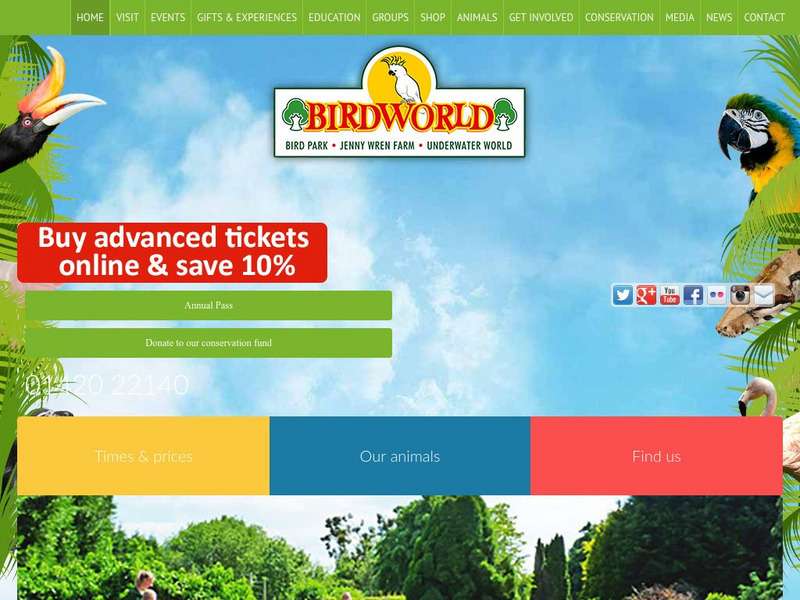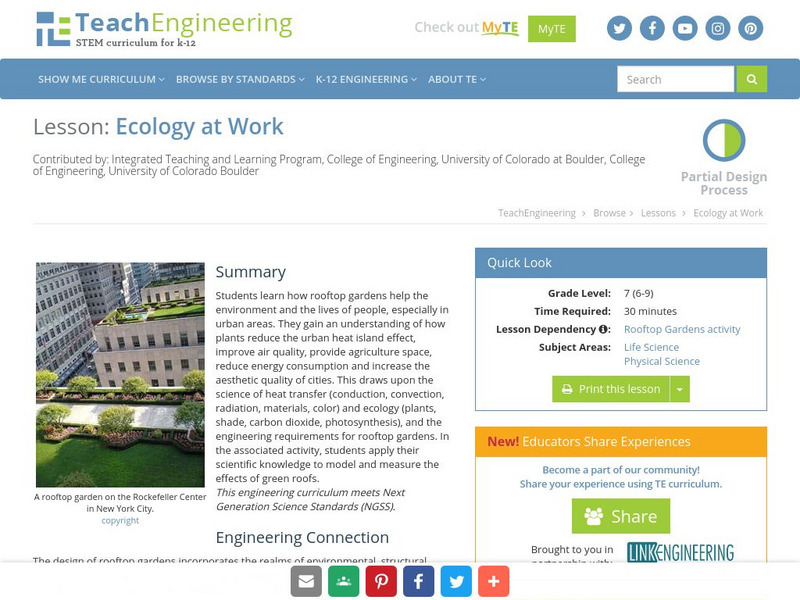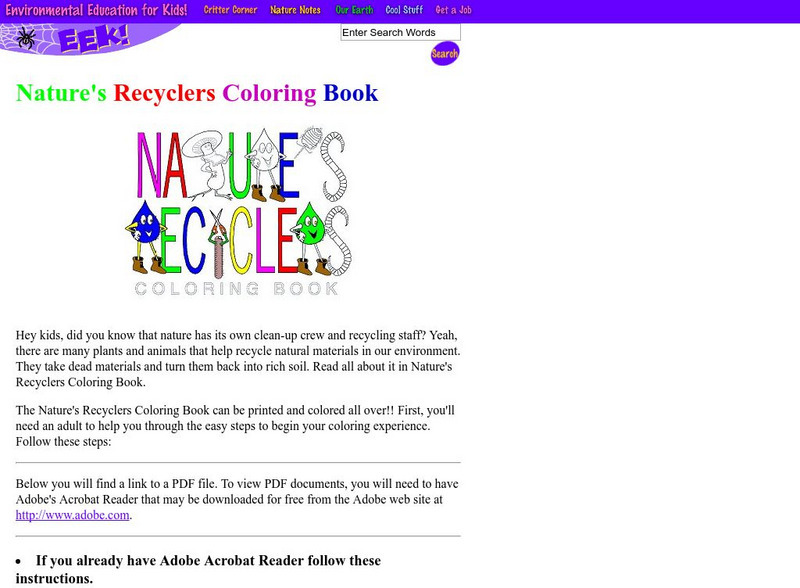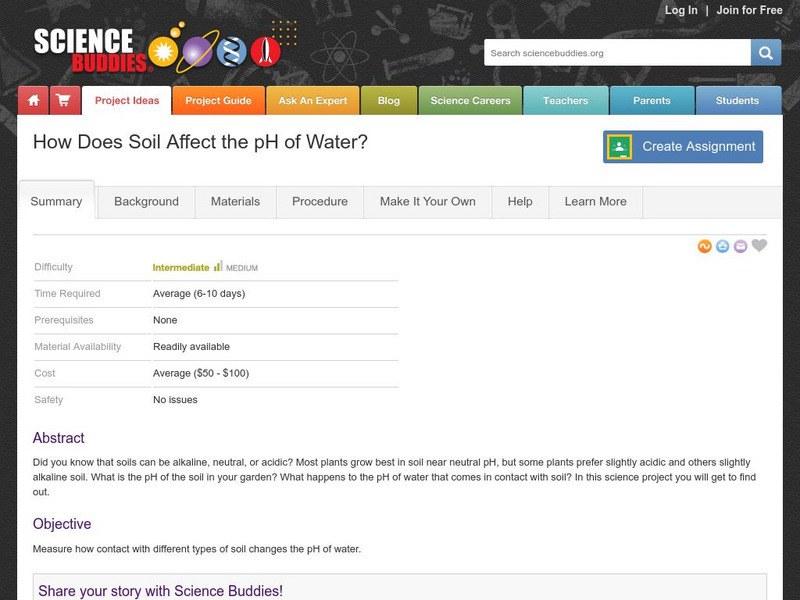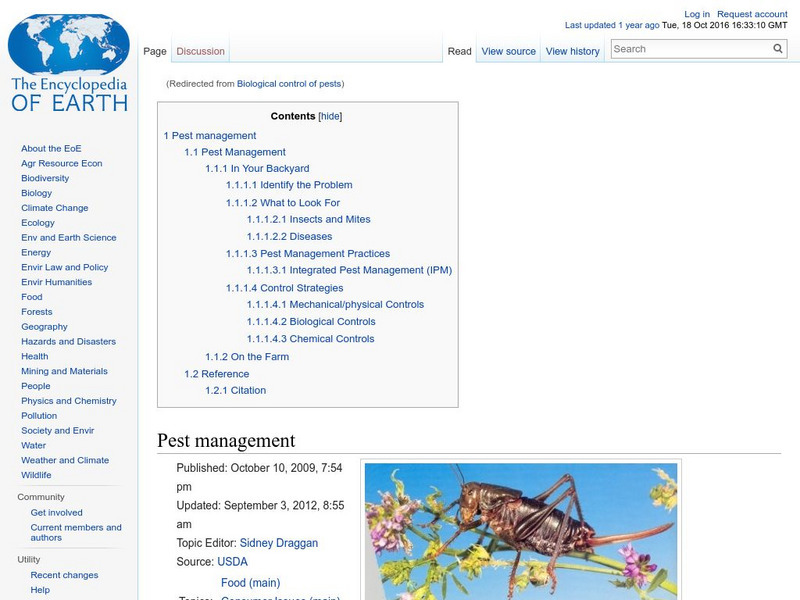Hi, what do you want to do?
Canadian Museum of Nature
Canadian Museum of Nature: Native Plant Gardening
Plants native to Canada that would do well in small, ecologically friendly gardens are presented here. There are several plants each for ponds, meadows and woodlands. Each plant has a popup window with facts about it.
Other
Birdworld: Britain's Largest Birdpark and Gardens
Want to learn more about England's Birds and Gardens? Visit Britain's largest birdpark and gardens in Surrey, England. Find out about the penguin feeding times and the safari rides.
University of Pennsylvania
Morris Arboretum of the University of Pennsylvania
This site presents information on the University of Pennsylvania's Morris Arboretum and Gardens. On this web page, you will find general information about the garden, features of the garden, information on the garden's plant collection,...
TVOntario
Tvo Kids: Games: Get Growing
Choose and plant your seeds, and then give them everything they need to grow in this interactive garden.
Other
Horticultural Worker I
Learn about what horticultural workers do and the skills that are required to perform this work.
Curated OER
Unesco: Iran: The Persian Garden
The property includes nine gardens in as many provinces. They exemplify the diversity of Persian garden designs that evolved and adapted to different climate conditions while retaining principles that have their roots in the times of...
Missouri Botanical Garden
Missouri Botanical Garden: Hot Deserts of the World
Find out about the sizes, physical features, and plant and animal life of some of the world's great deserts, including the Arabian, the Great Sandy, the Chihuahuan, the Kalahari, the Mojave, the Sahara, the Sonoran, and the Thar deserts.
Australian Broadcasting Corporation
Australian Broadcasting Corporation: Oceans Alive: Jewels of the Sea
This site contains information on both animals and plants of the sea. View the large sea kelps and discover the animals that feed on the kelp.
TeachEngineering
Teach Engineering: Ecology at Work
Students learn how rooftop gardens help the environment and the lives of people, especially in urban areas. They gain an understanding of how plants reduce the urban heat island effect, improve air quality, provide agriculture space,...
Other
Institute of Texan Cultures: Teaching Outside the Classroom: Growing Texas [Pdf]
A lesson unit on developing a classroom garden in Texas. Students must prepare a plan by analyzing the climate and which crops are best suited to their locale, how much sun their garden will get, which plants grow well together, and what...
Other
Rose Hills Foundation Conservatory for Biological Science
All about plants has information on plant parts--seeds, flowers, fruits, roots, and spores--and plant processes--seed dispersal, germination, pollination, and photosynthesis. You can also take a tour of this Los Angeles-based...
Other
Kitchen Culture Kits, Inc.: Plant Tissue Culture
An excellent site for learning about plant tissue culture. Great visuals and easy to understand instructions. Lots of links to other good sources.
Science Museum of Minnesota
Science Museum of Minnesota: Dandelion
In this lesson plan learn the basics of dandelions and how the seeds travel. There are links provided to related books and activities.
Texas Instruments
Texas Instruments: What's the Plan?
In this activity, students investigate area with nonstandard and standard units of measure. They work to plan a unique vegetable garden and calculate the costs of plants for the garden.
Alabama Learning Exchange
Alex: Where Is the Dirt? A Lesson in Hydroponics
This lesson will be developed around hydroponic gardening, the growing of plants without soil. Using the Internet, students will research hydroponics and share their knowledge with the class. A classroom hydroponic garden will be...
NASA
Nasa: Climate Kids: Make Exploding Seed Balls!
Try this fun recipe for making and growing wildflowers right in your own garden.
E-learning for Kids
E Learning for Kids: Math: Elephant Plant: Numbers to 100
Meet Akio and help him count all the beautiful plants in his garden.
Other
Planet Explorers
Celebrating plants and botanists, here find information on everything from photographic equipment, plant clubs, botanical gardens, seed sources, and a gallery where members can display their work. Read about famous botanists, or look for...
Environmental Education for Kids
Eek!: Nature's Recyclers Coloring Book
Did you know that nature has its own clean-up crew and recycling staff? Yeah, there aremany plants and animals that help recycle natural materials in our environment. They take deadmaterials and turn them back into rich soil. Use this...
Other
Kids World : Plant Nutrition
Plants need certain nutrients to grow well. Use this site to find out what plants need, how to care for them, how to read a fertilizer label, and do the fun activities, like a quiz, a puzzle and a coloring book.
Science Buddies
Science Buddies: How Does Soil Affect the P H of Water?
Did you know that soils can be alkaline, neutral, or acidic? Most plants grow best in soil near neutral pH, but some plants prefer slightly acidic and others slightly alkaline soil. What is the pH of the soil in your garden? What happens...
Encyclopedia of Earth
Encyclopedia of Earth: Entomology: Pest Management
Article discussing the types of pests that can affect garden plants (insects, mites, disease, weeds), how to determine the problem, ways of dealing with it, and prevention strategies. It also looks briefly at pest management on a farm....
Science Education Resource Center at Carleton College
Serc: Identifying Plant Family Characteristics
Students make observations of similarities and differences between three types of garden plants to determine why they are grouped together in one plant family.






